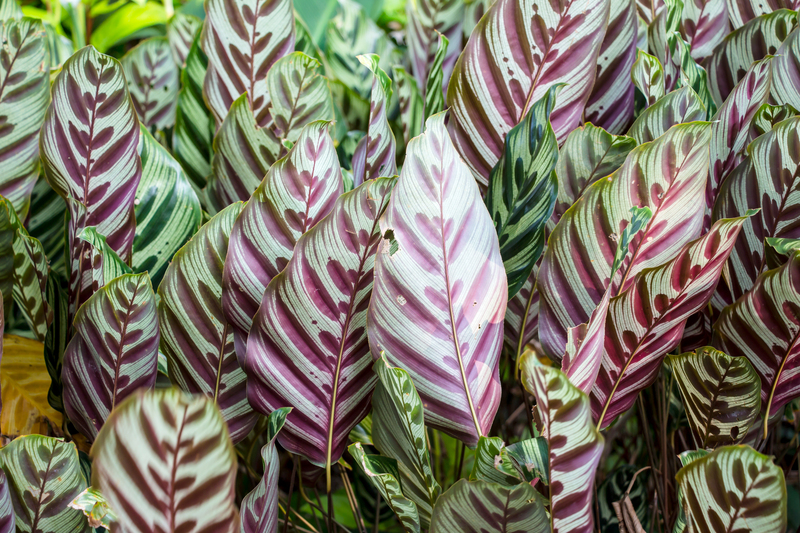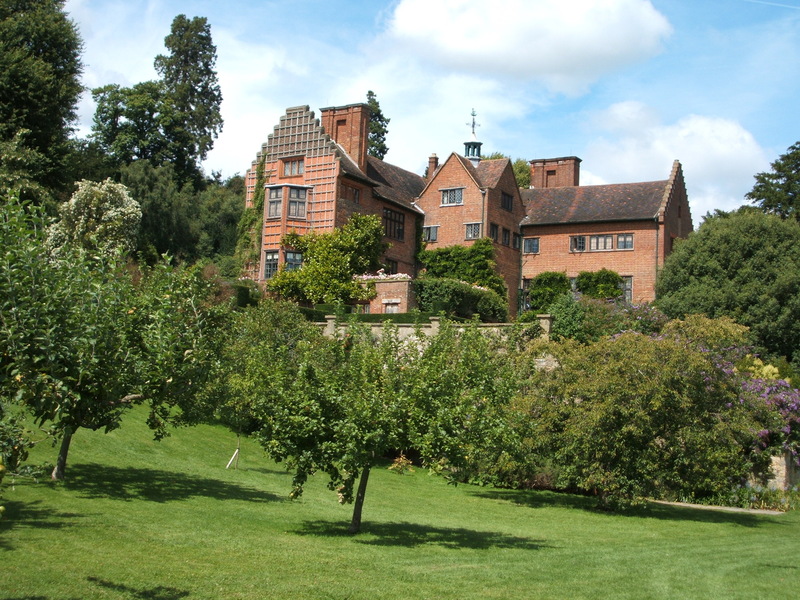Green Living: Composting Waste into Rich Soil
Posted on 23/08/2025
Green Living: Composting Waste into Rich Soil
Adopting a green lifestyle means making conscious choices that help preserve the environment, and one of the most effective and rewarding ways to do this is by composting. Transforming organic waste into nutrient-rich soil is not only simple but also profoundly beneficial for your garden and the planet. In this in-depth guide, we'll explore the ins and outs of green living through composting, tips for composting at home, the science behind composting, and how you can transform food waste into a powerful soil amendment.

What Is Composting and Why Is It Important for Green Living?
Composting is a natural process where organic materials break down into a rich, earthy material called humus or compost. This process is driven by microorganisms, such as bacteria and fungi, which decompose food scraps and yard waste into a soil-like substance bursting with nutrients. Composting waste into rich soil drastically reduces the amount of trash sent to landfills and provides you with an excellent resource for gardening and landscaping.
- Reduces landfill waste and greenhouse gas emissions.
- Enriches soil with essential nutrients and improves soil structure.
- Supports healthy plant growth without the need for chemical fertilizers.
- Promotes biodiversity in your garden by improving soil health.
How Does Composting Contribute to a Greener Lifestyle?
When you compost household waste instead of tossing it in the garbage, you're participating in a cycle of regeneration. Organic waste accounts for about a third of what we throw away, and it is a huge contributor to methane emissions in landfills. By composting, you significantly reduce your carbon footprint, produce no pollution, and create a renewable resource that enhances your local ecosystem. Composting waste into fertile soil is a practical action that aligns perfectly with the principles of eco-friendly living.
The Environmental Impact of Composting
- Decreasing landfill use: Composting diverts organic matter from landfills.
- Lowering greenhouse gases: Composting creates less methane than anaerobic breakdown in landfills.
- Protecting water sources: Healthy soil with compost absorbs rainwater and reduces runoff, protecting local waterways from pollution.
- Reducing chemical fertilizers: Compost decreases the need for synthetic fertilizers, which can harm soil and water quality.
What Materials Can and Cannot Be Composted?
A successful composting process relies on a balance of "greens" (nitrogen-rich materials) and "browns" (carbon-rich materials). It is essential to know what you can add to your compost bin for the best results.
Compostable Materials
- Fruit and vegetable scraps
- Coffee grounds and filters
- Tea bags
- Eggshells
- Grass clippings and leaves
- Plant trimmings
- Paper towels and napkins (unbleached)
- Sawdust from untreated wood
Do Not Compost
- Meat, fish, and dairy products (attracts pests and slows composting)
- Oils and grease
- Pet waste
- Synthetic materials (plastic, metals, glass)
- Diseased plants
- Glossy or coated paper
Composting Methods for Homes and Apartments
Whether you have a backyard or live in an apartment, there is a composting method to fit your needs. The most popular methods for eco-friendly composting include:
Backyard Composting
- Open Pile: Build a heap of organic material directly on the ground. Good for yards with ample space.
- Compost Bin: Use a plastic or wooden bin to contain your pile and keep pests away. Bins also retain heat, speeding up the decomposition process.
- Tumbler: Rotating barrels are a clean, easy way to aerate compost and deter rodents.
Indoor Composting
- Vermicomposting: This method uses red worms to break down kitchen scraps into black gold compost. Perfect for apartments.
- Bokashi: A fermentation process that pre-processes food scraps, including dairy and cooked foods. The resulting material can be buried in soil to finish decomposition.
- Community Compost Drop-Off: Many cities offer drop-off locations or curbside composting.
How to Start Composting at Home: Step-by-Step
Ready to embrace green living by composting waste into fertile soil? Follow these easy steps to get started:
- Choose a compost bin or designated area that's easily accessible and well-ventilated.
- Layer your compost:
- Begin with a base of twigs or straw for good airflow.
- Add alternating layers of greens and browns.
- Maintain balance: For healthy compost, aim for a 2:1 ratio of browns to greens.
- Keep it moist: Compost should feel like a wrung-out sponge. Water if dry, but don't drench it.
- Turn or aerate: Oxygen speeds decomposition, so turn your pile every few weeks or tumble your bin.
- Harvest your compost: In 2-6 months, compost at the bottom of your pile should be dark and crumbly. Sift and use in your garden.
The Science Behind Composting Waste Into Rich Soil
As you compost, billions of microorganisms--bacteria, fungi, and insects--work together to break down waste. Nitrogen-rich materials fuel their growth, while carbon provides energy. The heat generated by their activity can cause the pile to reach temperatures of 130-160?F, which helps kill pathogens and weed seeds. Eventually, all that effort yields dark, crumbly, earthy-smelling rich soil.
Key Composting Factors
- Air: Oxygen is necessary for aerobic decomposition.
- Moisture: Too little slows composting; too much turns it slimy.
- Particle Size: Chopping or shredding materials speeds up decomposition.
- Temperature: Warm piles break down faster, especially in the middle.
Common Composting Problems and How to Solve Them
It's normal to encounter a few issues on your green living composting journey. Here's how to handle common problems:
-
Foul odor:
- Usually means too many greens or not enough air.
- Add more browns and mix your pile.
-
Pile isn't heating up:
- Pile might be too small, too dry, or lacking nitrogen.
- Add more greens and water.
-
Pests:
- Never compost meat, dairy, or greasy foods.
- Use a closed bin and bury kitchen scraps under leaves or soil.
How to Use Finished Compost in Your Garden
The end product of your waste-composting journey is nutrient-rich compost--an incredible soil additive. Incorporate it into garden beds, mix with potting soil, or use as mulch.
- Top-dress vegetables, flowers, and trees in spring and fall for nutrient boosts.
- Add to planting holes for trees and shrubs to help young plants establish.
- Broadcast over lawns to improve soil texture and water retention.
- Make compost tea: Steep compost in water for a few days, then use as a liquid fertilizer for indoor plants or seedlings.
Tips for Successful Composting
- Chop waste: Smaller pieces decompose faster.
- Don't let it dry out: Keep your pile damp, especially in hot climates.
- Keep a covered kitchen pail for easy collection of scraps.
- Compost year-round: Decomposition slows in winter but doesn't stop.
- Be patient and experiment: Composting is both an art and a science.
The Role of Communities and Cities in Green Waste Composting
To foster a culture of eco-conscious waste-to-soil management, communities, schools, and municipalities are expanding their composting efforts. Many cities now offer curbside food scrap collection and composting programs, while community gardens often have shared compost bins. Participation in these programs makes green living and composting accessible, even for people with no yard.
- Check if your city offers compost pickup or drop-off sites.
- Support local community composting initiatives or school composting programs.

Myths and Misconceptions About Composting
- Composting is dirty and smelly: If done correctly, compost shouldn't smell bad and is easy to manage.
- It attracts rats and pests: Avoid this by never adding meat or dairy and using secure bins.
- It's too complicated: Start simple! Nature has been composting for millions of years.
Final Thoughts: Embrace Green Living by Composting Waste Into Rich Soil
Making the switch to composting waste into nutrient-rich soil is one of the most impactful changes you can make for both your home and the environment. By transforming everyday food scraps and yard waste into valuable compost, you join a growing movement of people championing green living practices. With each pile turned or worm bin fed, you're reducing your waste, improving your soil, and nurturing a healthier planet--one banana peel at a time.
Start Composting Today
- Assess your space and choose a compost method that works for your lifestyle.
- Gather kitchen and yard waste and start your first pile or bin.
- Share your success with neighbors and friends to inspire green living in your community.
Remember, every apple core or wilted leaf you compost brings you one step closer to a cleaner environment and more abundant garden. Green living truly starts from the ground up--so grab your compost bin and join the revolution!
Latest Posts
Empower your garden to contribute to climate change solutions
A closer look at the joys of container gardening
Unearthing the Joy of Raising a Herb Garden

